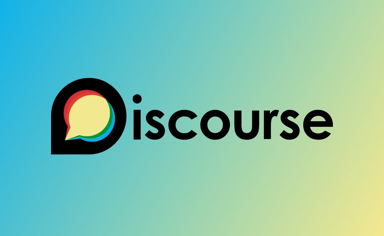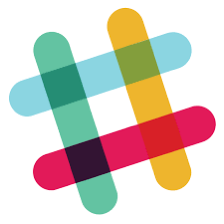 I remember when Google Plus first came out and with great excitement we all went in to see if this was something cool. I immediately started putting people in circles, thinking this was what I’d been waiting for in a social network. The idea was you could have family in one circle, family you actually liked in another, work friends in a third, real friends in a fourth. Then as you shared things you’d pick and choose which circles got to see only what you wanted them to see.
I remember when Google Plus first came out and with great excitement we all went in to see if this was something cool. I immediately started putting people in circles, thinking this was what I’d been waiting for in a social network. The idea was you could have family in one circle, family you actually liked in another, work friends in a third, real friends in a fourth. Then as you shared things you’d pick and choose which circles got to see only what you wanted them to see.
But for some reason that turned out to be way too much overhead for people. As excited as I was at first about it, even I stopped worrying about what circle people were in. But for me, the real greatness was when I discovered Google Plus communities. I created one for the NosillaCastaways and it was an instant hit. People came out of the woodwork and started sharing cool tech stories and asking each other questions and helping each other.
This was when I first realized that having a community was what would turn a mostly solo podcast from a one-to-many experience into a many-to-many community of friends. It also took the load off of me from time to time where others would jump in with an answer before I even had a chance. I made new friends, you guys made friends with each other, and it was a wonderful thing.
But then Facebook continued to grow and grow in popularity until there was no denying that it was where people were going nearly every day. I don’t know what the statistic was back then, but as of right now, there are 1.47B active DAILY users. With 7.65B people on the planet (according to Siri 7,652,516,839 people to be exact), that means 19% of the humans on earth are on Facebook … every … single … day.
If you’re trying to build a community, the highest chances of success are if you build it where the people already are.
In other words, resistance was futile. I remember saying I felt like Luke Skywalker being pulled into the Sarlacc. And I have to say, Facebook has only proven itself more and more worthy of our anger and distrust over the last few years.
But as begrudgingly as I created a Facebook group, I’m the first to admit that it’s been fantastic. My first love will always be Google Plus but every day our Facebook group is having wonderful discussions about Apple and photography and security and asking and answering each others’ questions. I’m not quite sure why, but our group is polite and friendly and we’ve never had a lick of trouble with anyone misbehaving in any way. Our Facebook Group is active and fun and I adore it.
I promised that I would stay with Google Plus as long as you guys were there and I’ve kept my word, but I have to say the people who really wanted me to not create the Facebook Group have become progressively more quiet over the last year. I can often look back over weeks and see only posts from me and Steve and Bart announcing shows. But just when I think it’s gone completely silent, people like George from Tulsa or Steve Davidson will pop up with something interesting to contribute and it gets fun again.
The reason I’m telling this entire story is that Google announced this week that they’re shutting down Google Plus early next year. The odd thing is that they combined this announcement with an “oh, by the way” that they had a significant data breach back in March. According to Engadget, they said that the company found a bug in one of the Google Plus APIs that allowed apps to access confidential user data such as name, email, occupation, gender, and age. The only good news was that the bug didn’t allow access to Google Plus posts.
Google said that they don’t keep the API log data longer than 2 weeks, so they don’t know whose data they lost, so they figured they just wouldn’t tell anyone. I wonder how the EU looks on this with GDPR? I know GDPR wasn’t in place until 2 months after the breach happened, but it sure seems that they still should have come forward with this when GDPR kicked in!
Whether we like it or not, Google is dropping yet another service. They say it’s because user engagement is low and I can’t argue with that. But now we have a question before us as NosillaCastaways. Where do the Google Plus NosillaCastaways go to talk and share geeky ideas? I’ve had discussions with quite a few people online since the announcement and I wanted to give you my thoughts on how we might go forward.
In my ideal world, all NosillaCastaways would be chatting in the same place getting to know each other and help each other. Now that we got my unrealistic dream out of the way, we’ll talk about reality. The reality is that our Facebook Group is thriving and that there is a significant portion of the NosillaCastaways who would rather have their eyeballs eaten by rats than join Facebook. So that pretty much means we continue to live in two worlds.
Here are some ideas of where to go and how I feel about them.
Online Discussion Forum with Discourse
 David Sparks moved the Mac Power Users over to Discourse-based discussion forum pretty recently (he hates Facebook too). I joined their Discourse a while back to ask some questions and didn’t get an answer and then forgot about it. However, I just did a scan of their Discourse this week and it’s pretty active in there.
David Sparks moved the Mac Power Users over to Discourse-based discussion forum pretty recently (he hates Facebook too). I joined their Discourse a while back to ask some questions and didn’t get an answer and then forgot about it. However, I just did a scan of their Discourse this week and it’s pretty active in there.
The pro of using Discourse is that it’s essentially a pre-built, open-source tool that you can configure yourself. But it means me renting a server, configuring the Discourse tool and Steve and I moderating a new environment. I don’t know how much work that would be but it would definitely be a significant addition to our workload.
Discourse doesn’t meet the standard of having a community where people already are but rather makes them have to pick up and drive over to a new place to see what’s happening. I don’t think I have the energy to be the one to keep trying to get people to go somewhere new.
Slack
 Slack is another highly requested idea. The biggest pro of Slack is that a lot of people are already in Slack (including me) so it fits the criteria of being where people already are. Maybe not everyone is in Slack but it seems to be gaining in popularity.
Slack is another highly requested idea. The biggest pro of Slack is that a lot of people are already in Slack (including me) so it fits the criteria of being where people already are. Maybe not everyone is in Slack but it seems to be gaining in popularity.
Slack lets you embed images, and links and has a good API to allow plugins.
One big problem, though. Allison pretty much hates Slack. I hate it less than I did originally, though.
The main thing I don’t like about Slack is that you have a different login for every Slack you join. That sort of make sense, but it became a real pain because I had five Slacks on five devices, which meant I had to log in 25 times. That’s not the way to endear me to a product!
You also had to know the name of the slack, like screencastsonline.slack.com in order to join. You could log into the web service and have it send you links to join but it was time-based and if you didn’t get on it right away you had to start over.
Just recently when I did my clean install on my MacBook Pro and my big iPad Pro, I wasn’t looking forward to doing those 10 logins. However, when I installed Slack, it let me log in just once and I was good to go. So that hating it part has gone way down.
Slack has the concept of Channels, and I find the implementation very annoying. You have to be invited to a channel in order to even know that it’s there. The person who invents the channel decides who to invite (or at least that was how it was when I first started). I think it’s easy to get too many channels going and have it hard for people to know where to talk. I did check out the management console and it looks like as an admin you can decide up front the channels to which people are automatically added.
I think one of the things people like though is to NOT be in all the channels. Let’s say we had an Android, Linux, iOS and macOS channel. The people who like Android and don’t like iOS would not want to be auto-added to the iOS channel. Now it starts sounding like work for the admin, doesn’t it?
One of the other things I hate is that Slack will give you an icon badge showing you have an unread message when you’re actually all caught up. This is a problem because you find yourself going into each and every Slack, and into every channel in each Slack trying to figure out where that darn unread notification is coming from. I’ve asked around and everyone tells me, “Oh yeah, that happens. Nothing you can do about it.”
Slack supports threaded messages, which is a pretty essential part of a good discussion area. However, the implementation is weird. You have to know to click on the little message bubble next to what someone wrote in order to start a thread. Most people don’t notice the message bubble and so they just reply right in line and it looks fine to them, but they haven’t really done the thread thing. Then you get people complaining about other people not doing it right so that’s annoying. But I suppose it’s workable.
If it’s easy to let people into a Slack, it might be a viable alternative. I did find that I could change the settings of the Slack to allow anyone with the URL to join. Might be workable.
Mastadon
 The week before last, you heard Matthias trying to explain Mastadon. That fits some of our criteria, but not most of our criteria. It’s incredibly difficult to understand, even for highly technical people. Dorothy has been trying to help me figure out how to even get back into the Mastadon server I did join. Maybe someday it will be ready for us but I don’t think that day is today.
The week before last, you heard Matthias trying to explain Mastadon. That fits some of our criteria, but not most of our criteria. It’s incredibly difficult to understand, even for highly technical people. Dorothy has been trying to help me figure out how to even get back into the Mastadon server I did join. Maybe someday it will be ready for us but I don’t think that day is today.
Discord
 One place I’ve suggested we try is our Discord server. It’s already set up for our live chat and so far people have found it to be much easier to join that the old IRC chat. It does allow embedding of images and links, and you can be as anonymous as you like.
One place I’ve suggested we try is our Discord server. It’s already set up for our live chat and so far people have found it to be much easier to join that the old IRC chat. It does allow embedding of images and links, and you can be as anonymous as you like.
It sort of fits our “where you already are” criteria since so many of the active participants are live show listeners, but it’s certainly nothing like Facebook in terms of numbers. The other thing is that it doesn’t have threaded messages at all. So if you leave a question there on Tuesday at 3 pm there could be 20 messages going by and none of them have anything to do with what you wrote. I’m not sure that even meets the vaguest definition of a discussion forum, does it?
Oh, and it’s not very accessible.
Bottom Line
The bottom line is we need a place for the people who hate Facebook to meet and make trouble together. I hate to admit it, but it’s sounding like Slack might be the best alternative right now. I’m going to do some more noodling around in there and see if I can stand it for the long haul.
Who knows, maybe in the next six months someone will finally come out with the perfect social network that we all can love and we’ll all flock there. Let me know what you guys think about all this, I really want to get your feedback.

Allison, I just have one thought at the moment. Google said that Google+ was going away for average users but not for companies or institutions (if I understood correctly). I wonder if the Nosillacast community would count as a big enough thing (not sure what the best word is here) to allow it to continue. It might not hurt to reach out to them to see.
Allison, that last comment was mine. I forgot (if I ever knew) how to log in to Podfeet. Anyway, I’m George Conant.
George Conant’s suggestion is a good one that unfortunately won’t work because whatever Google will continue is part of the GSuite (Google Apps for Schools, Businesses, and Charities). Cost is reasonable, at the last time I checked $50 per log in ID. My own thought is that Google will eventually pull the plug on that stump of Google Plus, too.
Good chance I was the most active Castaway in the Podfeet Google Plus Community. It was a window into what Allison and Steve and other Castaways were doing, and a way to possibly contribute back by maybe helping others with Mac issues.
I really have no suggestion for a different third party site. Google Plus was easy because it is built into my Gmail interface and thus frictionless. All those other alternatives require an action, creating an account to join a service, then either keeping the service running in the background, or booting into it to see what’s going on.
Ubuntu had one of the largest Google Plus Communities, but much like the 50,000+ member “Macro Monday” GPlus Community I inherited, Ubuntu’s had been over run with spam and, yep, porn postings. After the closing announcement, “Macro Monday” became a larger target for porn spam, so I just locked it down, letting in no new users and accepting no new posts.
The Ubuntu Podcast had used Google Plus and dabbled in Mastodon. They just re-established their Mastodon presence, which I clicked into for the first time. It has a great advantage over Facebook and other proprietary services: Mastodon pages are accessible to view over the public internet.
https://octodon.social/@ubuntupodcast
The Solus Linux Distro used Google Plus as its primary way to communicate with users. I did share with Allison a link to that community’s attempt to come to terms with a need to replace GPlus. I’ll not add that link to the one above, as I seem to have trouble with links here.
My personal vote is for Slack. I’ve heard lots of podcasters talk about it for their own communities and more (e.g. Relay FM have a hosts’ area apparently). Relatively recently I’ve joined two such communities and despite the oddities of Slack (all described above) I’ve found it to be a worthwhile endeavour.